We. Are.
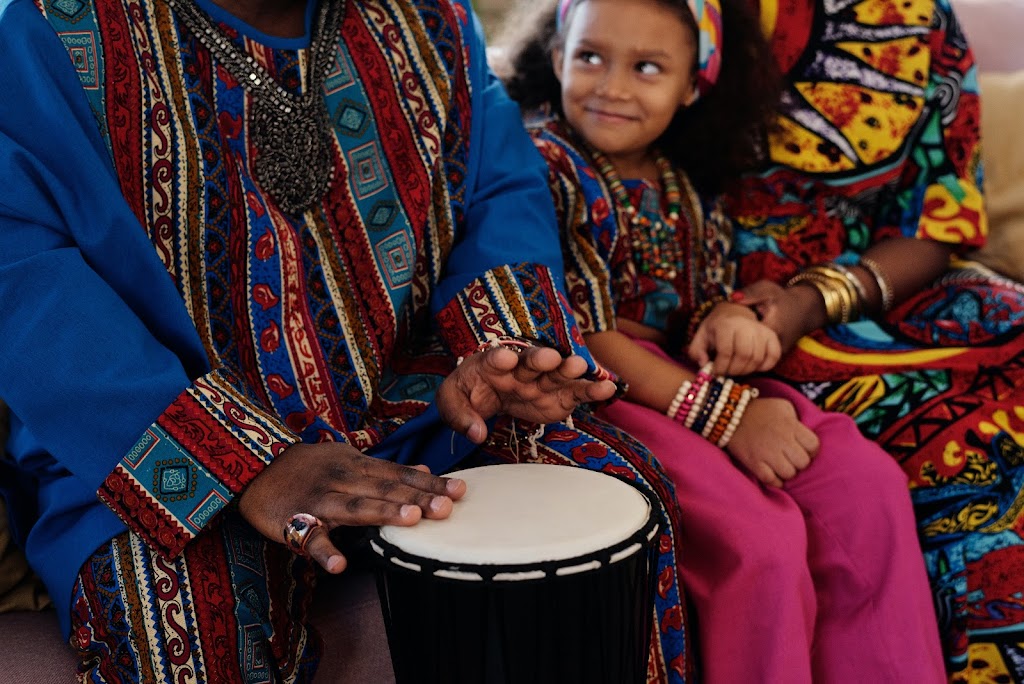
Photo by Askar Abayev For all the Shades of Us, Tones of black, Hues of white, And all that holds in between, Moving strong in harmony. Undefeated! We are Elephants! “We are chapters of revelation,” “We are travelers of science,” But we all believe in life and hope, With powerful voices, And beauty to behold, We are Lions! From the land of wonder, We all rise from gold, Strong in our hearts, With spears in our fists, And fire in our voices, We are warriors! We move to the beats of our blood, Our feet firm, And hips warm, Dancing to the drums of our fathers, One rhythm at a time, We are dancers! Our resilience is in our ancestry, A common culture shared, In wealth and royalty, We are Kings, We are Shaka, We are Mansa, We are Asantewa, We. Are. Africans! © Safiyah Salawu-Ibrahim, Shades of Us Africa.
A Gathering of Women in Film
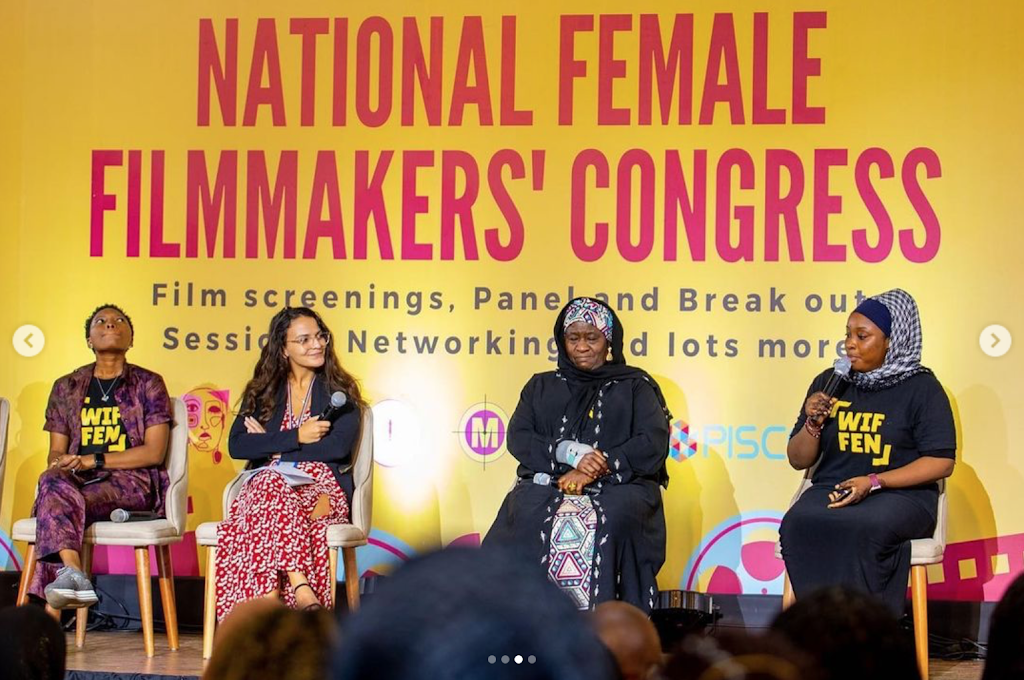
Panel session at the National Female Filmmakers’ Congress. “Women belong in all spaces.” We are glad to see that more women have accepted this and are creating rooms for themselves to be seen and heard. While there is still so much work to be done, we are seeing women buck against gender norms in career choices because, and it is sad that this has to be said…careers are not gendered. We are especially ecstatic about the number of women who are taking on roles in all areas of filmmaking: writing, editing, directing, production, marketing, distribution etc. You are as likely today to see a woman rigging her own camera and lights as you are to see one in the biggest rooms where film publicity and distribution are discussed. This is such a flex! It is why when we heard about the conference for women in film, we were excited to attend. The National Female Filmmakers Congress was organized by Girls Voices Initiative, conveners of Women’s International Film Festival Nigeria (WIFFEN), on October 11, 2022 at the Shehu Musa Yar’adua Centre in Abuja. The congress was a gathering of filmmakers to celebrate women in film, the International Day of the Girl Child and World Mental Health Day. It was an avenue to watch films made by women, listen to filmmakers share their experiences in the industry, and generally pick up lessons that we could adopt to improve our work as filmmakers. Cross-section of participants at the event. Welcome remarks were given by Emmanuelle Blatmann, the French Ambassador to Nigeria, and Mrs. Carolyn Seaman, Creative Director, Girls Voices Initiative. Two films were screened at the event: Miss Binary by Girls Nation (Kano) and The Burial of all Women by Girls Nation (Abuja). The films centered on resilience and mental health, and were a powerful watch. Following the film screening was a panel discussion on the films that had been viewed. Panelists included Halima Ben-Umar, Maryam Abubakar, Binwana Gazuwa, Amaka Agudiegwu, Asabe Madaki from Girl Nation in Kano and the Federal Capital Territory, Abuja. They shared their experiences and how the Girl Nation program has impacted their life and work. Panel session with Nadine Ibrahim and Rahama Sadau. Other panel sessions were “Tips on Global Standard Productions (Netflix, Amazon Prime, International Film Festival etc.)” with Nadine Ibrahim of Nalia Media and Rahama Sadau, Actor and Producer at Dee Dee Films where they urged filmmakers to be authentic, detail and quality oriented, and to build a portfolio that proves the quality of their work. There were breakout sessions around funding films, and the legal aspects of filmmaking with Mr. Muhammad S. Bawa and Barr. Ese Igbako Esq. respectively. Overall, we think it was a great event and opportunity to engage with a gathering of women in film.
All We Learned at Google For Africa 2022

We attended the first Google for Africa event in 2021 and were impressed by how much Google was investing in Africa to improve educational, technology, entrepreneurial and developmental indices across the continent. We learned of the plan to invest $1Billion over a period of five years to support a range of initiatives from improved connectivity to investment in startups to help boost Africa’s digital transformation. The second virtual Google for Africa 2022 event was held on October 5-7, 2022, and the global tech giant shared how it is delivering on its commitment to support various initiatives: from improved connectivity to investment in startups and nonprofits. It was an opportunity to learn what Google is doing on the continent to improve our economic indices and overall development. Here are some of the key points we found fascinating at the event. In his opening remarks, Nitin Gajria, the Managing Director of Google, shared that Google was investing the $1 billion in Africa Digital Transformation in four areas: affordable access and helpful products; digital transformation for African businesses: investment in African Entrepreneurs; and support for non-profits in Africa. Investment in African Entrepreneurs through Google for Start-Ups provides equity-free finance, work space, and access to expert advisers. Last year Google for starters launched Black Founders’ Fund to invest in black-led startups in Africa and through Google for Nonprofits, Google is donating $1 million in ad grants every month and helping people collaborate with Google Workspace and Google Career Certificate scholarships. James Mayinka, Senior Vice President of Technology and Society at Google, spoke on Building the Future together. Something powerful about his speech was the need to understand that partnership is an essential foundation we need to capitalize on. The potential technology offers Africa for growth, prosperity, and opportunities cannot be overemphasized because 19 of the 20 fastest-growing countries in the world are in Africa and the African economy has the potential to grow by $180 billion in 2025. This potential would create increased opportunity, let families earn a living, and expand the incredible pool of talents and entrepreneur energy on the continent. He also mentioned that at the United Nations General Assembly, Google announced a renewed commitment to use Artificial Intelligence to monitor the progress on the Sustainable Development Goals. The commitment includes a $25 million fund to support non-governmental and non-profit organizations in this work. We were excited to hear that all the projects supported will be open source to ensure that the progress made by one organization will be accessible to others so they can build and expand on it. Ghana seemed deeply committed to benefiting from these opportunities. Dr. Manamudu Bawumia, Vice President of Ghana, delivered a speech titled, “Helpful Partnerships for Digital Transformation”. He made candid explanations that in Ghana, they have put the private sector at the front and center because the private sector is the innovation in the technology space, they can bring a lot of financing to the table and they have an incentive to keep the systems that are deployed to work efficiently. He explained their partnership with Google which has enabled job creation through the launch of the Artificial Intelligent Research Center: the only one in Africa, based in Accra, Ghana. Niral Patel, Director of Google Cloud, Africa, spoke on Digital transformation with Google Cloud. We learned that Google operates the cleanest cloud in the industry. It has been carbon neutral since 2007 and the goal is to operate on carbon-free energy by 2030. This would make Google the first cloud to achieve this. He announced that a google cloud region would be open in South Africa, building cloud interconnect sites in Cape Town, Johannesburg, Lagos, and Nairobi. In doing so, they are building full-scale cloud capacity for Africa. This will help businesses adopt new technology and unleash new opportunities for the people of Africa. And just when we wondered if there was no woman in the lineup of speakers, Agnes Gathaiya, Country Director, Google East Africa, was introduced. She spoke on Building for Africa with Africa by Africans and shared the improvements in language accessibility and barriers using Google. “If you talk to a person in a language they understand, it goes to their head. But if you talk to them in their language, it goes to their heart.” We learned that Google keyboard has about 200+ African languages and that Google made progress in ensuring letters and ascent that contribute to the richness of our African languages are available for text on our devices. One of the most fascinating things we gleaned from her presentation was that, through Google Source Initiatives, the community helps train machine learning models to improve speech recognition technologies. Also, the Africa Product Development Center in Nairobi, Kenya, is the first of its kind, where talents joining the team will help create full products and services for the continent. She announced that Google also launched Interview Warm Up, which helps people practice for interviews and get more confident about the interview process. Google was speaking the language we loved to hear about our continent. But there was more. Ola Fadipe, Senior Director, People Operation, Google, delved into the ‘Investing Africa’s Talents’ presentation. She declared that Google for Startups is supporting entrepreneurs who are solving local problems. And that the second part of the fund will support 60 African startups with $1 million in equity-free funding, $200,000 in Google cloud credits, and mentorship. And 50% of these are Women-led Startups. Whoopee! Some examples of job seekers’ support that she mentioned were: Google Career Certificate program where 87% of graduates have reported a positive career outcome within 6 months of completion; the Google African Developer Scholarship program which has helped 105,000 African developers on Android web and Google cloud technology, exceeding the original plan of 100,000 developers; Partnership with the Kenya Ministry of Education, the Technical and Vocational Education and Training Authorities, and the Africa Center for Advanced Technology helped to train 300 tutors from 45 institutions across Kenya to
Fun Times to Commemorate the Global Week to #Act4SDGs
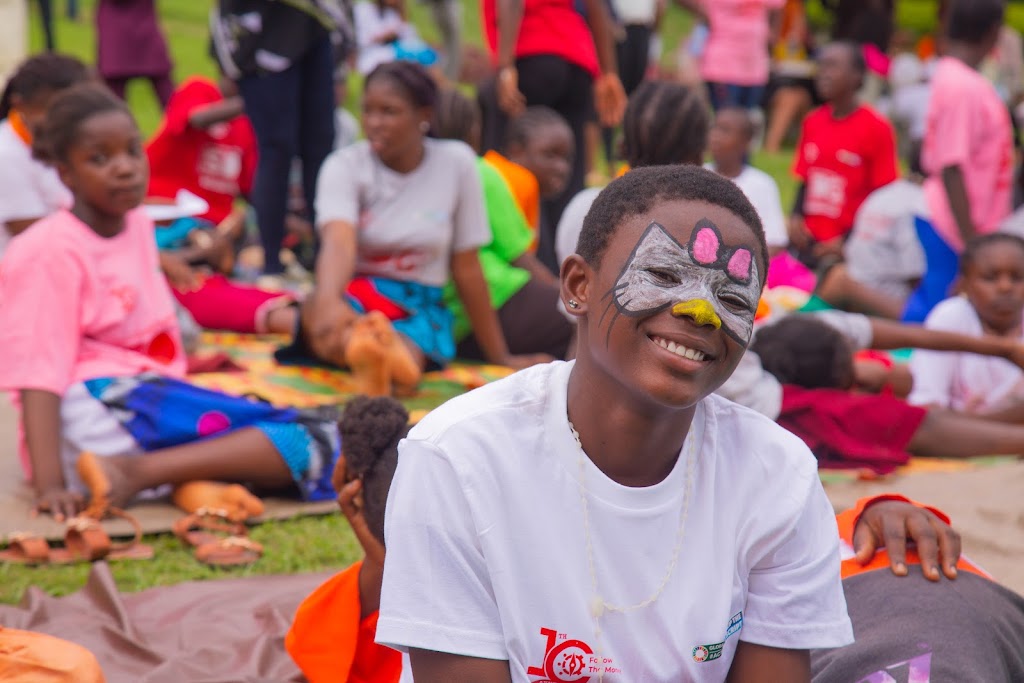
Young advocate for the Sustainable Development Goals. As an organization, we can be serious but…we also love to have a good time. When we heard about the Sustainable Development Goals (SDG) hangout organized by Connected Development (CODE) to commemorate the Global Week to #Act4SDGs, we were excited. Hangout equals fun, right? CODE was launched in 2012 to improve public governance in Nigeria and across Africa by empowering marginalized communities to demand high levels of accountability and transparency from the government. Through its Follow The Money (FTM) Initiative, CODE enables citizens to demand better from their government and directly influences government policy to ensure public funds work for public good. Shades of Us has followed the activities and been an ardent fan of CODE for years and we were excited to be part of the celebration of their decade of impact in mobilizing communities to #FlipTheSwitch for the SDGs. On September 17, 2022, we donned our excitement caps and attended the SDG hangout. Sights from the SDG hangout. The hangout was fun filled and we got to meet various individuals and learned of organizations working on similar SDGs projects as we do: no poverty; zero hunger; good health and wellbeing; quality education; gender equality; clean water and sanitation; decent work and economic growth; reduced inequalities; climate change; peace, justice and strong institutions; and being open to partnerships for the goals. One of the key highlights was seeing children explain the SDGs and honestly, quite better than many adults. Children are not just the future of the SDGs…or any form of development: they are the present. We must be deliberate in including children, adolescents and young people to meaningfully contribute to the global goals and envision a better community, nation, continent and the world at large. We were especially excited to just unwind, dance, eat and enjoy the ambience of activists and advocates taking a breather. Imagine our surprise when the Nigeria Idol star, Francis was called to the podium. He serenaded us with two new songs and suffice to say, many women wanted to be married at that moment. When the event was over, we were ecstatic to get back to work on the SDGs. There is, after all, a lot of things to achieve as we work towards 2030. Check out more pictures here. How did you commemorate the Global Week to #Act4SDGs?
Allow Us to Re-Introduce Ourselves

Shades of Us Storytelling Initiative for African People (‘Shades of Us’) is a non-profit organization using storytelling to address the socio-economic issues affecting Africa, Africans and people of African descent. This is with a view to facilitating open and honest conversations that lead to introspection, analysis and perspective change towards the greater goal of a redefined continent and people. Shades of Us was founded on April 28, 2014, by Ramatu Ada Ochekliye to address dysfunctional social issues peculiar to Africans living on the continent, or descendants of migrants who may have voluntarily moved to other continents or may have been forced – through human trafficking and slavery – to leave. Goal: To promote a just, equitable and sustainable society for Africans and people of African descent. Objectives: – To use storytelling to promote equitable societies for African people; – To spark conversations on human rights, roles and responsibilities for more equal African societies; – To promote African cultures and increase indigenous, national, regional and continental pride in our heritage; – To promote learning, development and capacity building of young people to push for African development and growth; and – To create safe spaces for survivors of abuse geared at facilitating healing and shared communities for growth. The founding principle of Shades of Us is the belief that all human beings are equal, have the same basic human rights and should be accorded the same respect and opportunities that guarantee their growth and development. Based on this founding principle, Shades of Us is subscribed to all thirty articles of the Universal Declaration of Human Rights and works towards promoting these rights for every human being, with special focus on Africans and people of African descent. Beyond the human rights declaration however, Shades of Us has adopted eleven of the seventeen Sustainable Development Goals (SDGs) as focal points of implementation. These goals include: no poverty; zero hunger; good health and wellbeing; quality education; gender equality; clean water and sanitation; decent work and economic growth; reduced inequalities; climate change; peace, justice and strong institutions; and being open to partnerships for the goals. They translate to Goals 1, 2, 3, 4, 5, 6, 8, 10, 13, 16 and 17 of the sustainable development goals. Shades of Us believes that the promotion of gender equality and reduced inequalities are the springboards to achieving all the other goals adopted. The organization is especially bias towards the issues that affect women and children. This is because globally, African women and children have been the most disenfranchised in all indices of human development. Speaking up for, and standing against societal norms that predominantly affect women and children, becomes the only recourse to redressing years of inequality and the drawbacks associated with it. What does Shades of Us offer? The answer is simple: storytelling. We tell stories for Africa, her people and descendants of her people. These stories are channeled through various platforms to engender discussion. They include: 1. The Blog: Primarily started as a site to air personal opinions, Shades of Us has grown to a magazine of articles, in-depth interviews, news and fictional stories from various writers. 2. Podcasts: Shades of Us has two podcasts: The Review and The Social Commentary. On The Review, the overarching themes in the art (music, movies, TV shows, books etc) produced by Africans and people of African descent are discussed and analysed to see how they shape society. With the Social Commentary, discussions around socio-economic issues affecting people are at the forefront of the conversation. 3. Video log: This is similar to the social commentary with special focus on issues affecting women and children. 4. Films: The organization produces short films that address the general theme of our work. This will expand further to feature length films, documentaries and other productions in the audio-visual category. 5. ‘Did you know?’ Quick-E videos: These showcase facts about indigenous African peoples and cultures are shared as short snippets. It is a fun way to learn about people who share the same skin tone and socio-cultural issues yet, are vastly different from us. The ‘e’ in Quick-E is Education. 6. Forum Fridays: This is a live interactive session where the audience does the talking. It would entail picking up trending topics and hearing their thoughts, feelings, rebuttals and rants. 7. Community Engagement: Beginning in 2016, Shades of Us started partnering with other organizations like Save Our Women (SOW) Foundation, Women Regaining Value, Stand With A Girl (SWAG) Initiative and Jela’s Development Initiative (JDI) to move our activism from the digital space to impacting, in-person actions. This will continue to happen in line with goal 17 of the global goals. And beginning in 2022, Shades of Us will host what would become an annual event called Safe Spaces. This is an avenue to bring together victims of abuse to talk about their abuse, how it affects their lives, how society – families, schools, governing authorities, law enforcement etc. – reacts to their abuse and what hope they have going forward. Another aspect of our community engagement will be through basketball and filmmaking. We will use these avenues to train young people to become the best versions of themselves. For years, our identity and brand has revolved around these areas of engagement. When we started Shades of Us, we designed our logos to be feminine because first, we are a feminist organization, and… they described the core of the work we were focused on. While that remains our core mandate, our next phase will be more inclusive. We have grown from personal commentaries on Facebook to a fully incorporated non-profit organization registered in Nigeria. We intend to branch out to eleven other countries in Africa and the Caribbeans: Ghana, Rwanda, South Africa, Seychelles, Botswana, Mauritius, Madagascar, Kenya, Uganda, Barbados, and Jamaica. We want to tell stories about women, children, men, gender non-conforming individuals, people with disabilities etc. As such, we designed our new logo to be more representative of all the shades of us. So…it is with immense
Volunteer Roles at Shades of Us
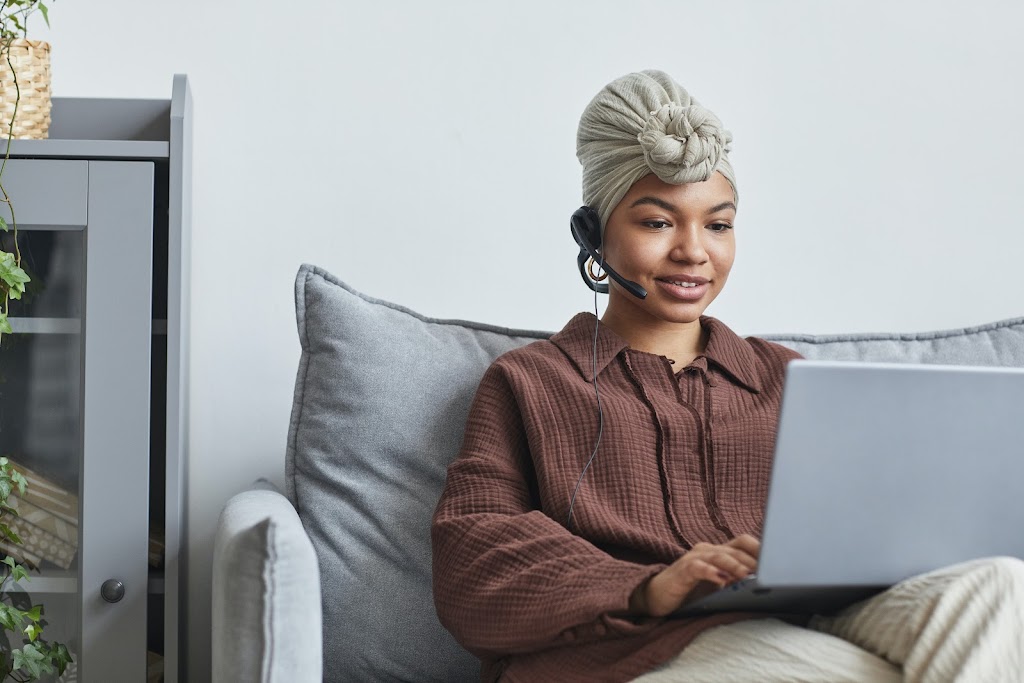
Photo by Jep Gambardella On May 13, 2022, we got our certificate of incorporation as a non-profit organization from the Nigerian Corporate Affairs Commission. Since then, we have been looking to expand our operations and impact lives across Africa and with people of African descent. As a direct result, we are hiring volunteers to help us chart the course of our organization’s direction and growth. As a reminder, Shades of Us Storytelling Initiative for African People (‘Shades of Us’) is a non-profit organization using storytelling to address the socio-economic issues affecting Africa, Africans and people of African descent, with a view to facilitating open and honest conversations that lead to introspection, analysis and perspective change towards the greater goal of a redefined continent and people. Our goal is to promote a just, equitable and sustainable society for Africans and people of African descent. Our objectives are: – To use storytelling to promote equitable societies for African people. – To spark conversations on human rights, roles and responsibilities for more equal African societies. – To promote African cultures and increase indigenous, national, regional and continental pride in our heritage. – To promote learning, development and capacity building of young people to push for African development and growth. – To create safe spaces for survivors of abuse geared at facilitating healing and shared communities for growth. We have the following positions open and look forward to interested individuals applying. Job Title: Project Manager – Shades of Us Location: Abuja (Hybrid – 75% Remote) Employment Type: Volunteer (20 Hours Per Week) Duration: 6 months Openings: 1 Job Summary We are looking for a creative, dedicated individual to volunteer on our team as a Project Manager. The individual would be responsible for overseeing the organization’s direction, developing growth strategies and providing oversight functions to the team. Responsibilities Plan and execute programme activities in a timely and accurate manner. Develop and implement programme strategies/work plans. Collect, analyze and present information needed for programme development and implementation. Develop and implement project communication strategies. Assist in preparation, filing, compilation and dissemination of documents/materials relating to the programme. Prepare reports on the findings and lessons learned from specific projects and initiatives. Requirements Interested candidates should possess: Basic understanding of the sustainable development goals. Prior experience working in a non-governmental organization. Proficiency with computer technology and Microsoft Office applications. Oral and written communication skills. Negotiation and problem-solving skills. Time management and organizational skills. Attention to detail. Training and facilitation skills. Remuneration: N25,000 per month Application Closing Date July 22, 2022. How to Apply Interested and qualified candidates should send their CV and Cover Letter to: shadesofusafrica@gmail.com using the Job Title (Volunteer Project Manager – Shades of Us) as the subject of the email. Job Title: Business Development Officer – Shades of Us Location: Abuja (Hybrid – 75% Remote) Employment Type: Volunteer (20 Hours Per Week) Duration: 6 months Openings: 1 Job Summary We are looking for a creative, dedicated individual to volunteer on our team as a Business Development Officer. The individual would be responsible for seeking funding and growth opportunities for the organization, and seeking community engagement activities to increase the organization’s impact in accordance with the sustainable development goals. Responsibilities Apply for film, podcast and operational grants. Apply for writing competitions. Research short film and podcast competitions and festivals and submit entries into them. Seek opportunities for community engagement. Write monthly reports. Requirements Interested candidates should possess: Basic understanding of the sustainable development goals. Strong business development knowledge. Ability to effectively research new markets. Creativity and problem-solving skills. Excellent written and verbal communication skills. Analytical and detail-oriented. Strong negotiation skills. Decision-making and leadership skills. Time management and organizational skills Remuneration: N25,000 per month Application Closing Date July 22, 2022. How to Apply Interested and qualified candidates should send their CV and Cover Letter to: shadesofusafrica@gmail.com using the Job Title (Volunteer Business Development Officer – Shades of Us) as the subject of the email. Job Title: Content Creator Location: Abuja (Hybrid – 75% Remote) Employment Type: Volunteer (20 Hours Per Week) Duration: 6 months Openings: 1 Job Summary We are looking for a creative, dedicated individual to volunteer on our team as a content creator. The individual would be responsible for developing the organization’s content strategy and working with other team members to create tailored content for our websites, social media handles, and newsletters. Responsibilities Develop content goals and strategies for the organization. Collaborate with other team members to brainstorm subjects for creative content. Create unique, simple-to-understand, and user-friendly content using good SEO techniques. Editing and proofreading new content before publication. Write scripts for podcasts. Support film research, production and post production. Support community engagement program. Document community engagement program. Managing content distribution through our various channels, including developing an editorial calendar. Analyzing performance indicators and web traffic and determining the effectiveness of created content. Write a monthly performance report. Requirements Basic understanding of the sustainable development goals. Copywriting, graphic design, script writing. Strong working knowledge of content creation and management software, including Canva, Hootsuite, Buffer etc. Good working knowledge of HTML and SEO. Excellent written and verbal communication skills. Strong attention to detail, multitasking, and analytical skills. Ability to work independently and as part of a team. Remuneration: N25,000 per month Application Closing Date July 22, 2022. How to Apply Interested and qualified candidates should send their CV and Cover Letter to: shadesofusafrica@gmail.com using the Job Title (Volunteer Content Creator – Shades of Us) as the subject of the email. Job Title: Audio and Video Editor – Shades of Us Location: Abuja (Hybrid – 75% Remote) Employment Type: Volunteer (20 Hours Per Week) Duration: 6 months Openings: 1 Job Summary We are looking for a creative, dedicated individual to volunteer on our team as an Audio and Video Editor. The individual would be responsible for creating tailored audio and visual content for our websites, social media handles, and newsletters. Responsibilities Record and edit weekly review podcast episodes. Record and
An Ode to Nigeria (For Country, for You and Me)
Photo by Tope A. Asokere from Pexels By Ojonugwa Yahaya. When you continually tell even the most beautiful creature… hmm maybe even more beautiful than Agbani Darego🤔…that she is ugly, in no time she may start believing and even start looking ugly… that is how dynamic nature and human psychology works. Learn to speak the right word to people, the environment you live in and the nation you call home. I will not stop holding on to this ideology of mine… that as we continue to confess negatively about Nigeria without making much effort to salvage what is left and to transform it to the nation of our dreams, she will constantly remain what we do not desire. It is not Nigeria as a geographical area that is bad or corrupt: an empty territory cannot be considered corrupt or bad. It is the humans that live in said territory that define and determine the character of the territory. So, if Nigeria is corrupt or bad, or “not homely”…it is me, you and the man next door that is corrupt and bad. Dubai isn’t what it is today due to the geographical area: after all I learnt that the territory is even a desert. It is the humans in Dubai that define Dubai that everyone – including you and I – see as a dream destination today. Think about it. Let us have a conversation. I am in love with great souls like Nike Okundaye. She is tirelessly holding and mending the broken artistic Nigerian heritage in an elegant and dynamic way. Nigeria has many heroes who do her great justice: Ngozi Okonjo-Iweala, Kate Henshaw (an epitome of kind heartedness and courage), Chimamanda Ngozi Adichie (the queen of literature) Wole Soyinka (writing life on pages as if he was born with ink), Innocent Ifedaso of Innoson Motors, Allen Onyema of Air Peace, Folorunso Alakija, Mike Adenuga (master story teller! I mean…we learned to appreciate soap opera through ‘super story’) and many more. Then there are those Nigerians – including young people – who are tirelessly working in the development, economic, health, education, maritime, energy, ICT and advocacy sectors across country. With their work, they are reaching out to the underserved and hard-to-reach communities with messages of hope and provision of social amenities. Our nation has many unsung heroes! I think it is about right if we find a way to appreciate Nigeria. I know Nigeria isn’t treating anyone right but… the problem is more about the Nigerians than Nigeria as a geographical area. Yes…our reality is that we are overwhelmed and overshadowed with the many things that just aren’t working but do we fail to notice the many aspects of the positives in Nigeria? We can make the necessary sacrifices to change the narratives about Nigeria. We have the capacity to build our nation for ourselves. Let us build our country today!
Illiteracy and Functional Illiteracy in Nigeria.
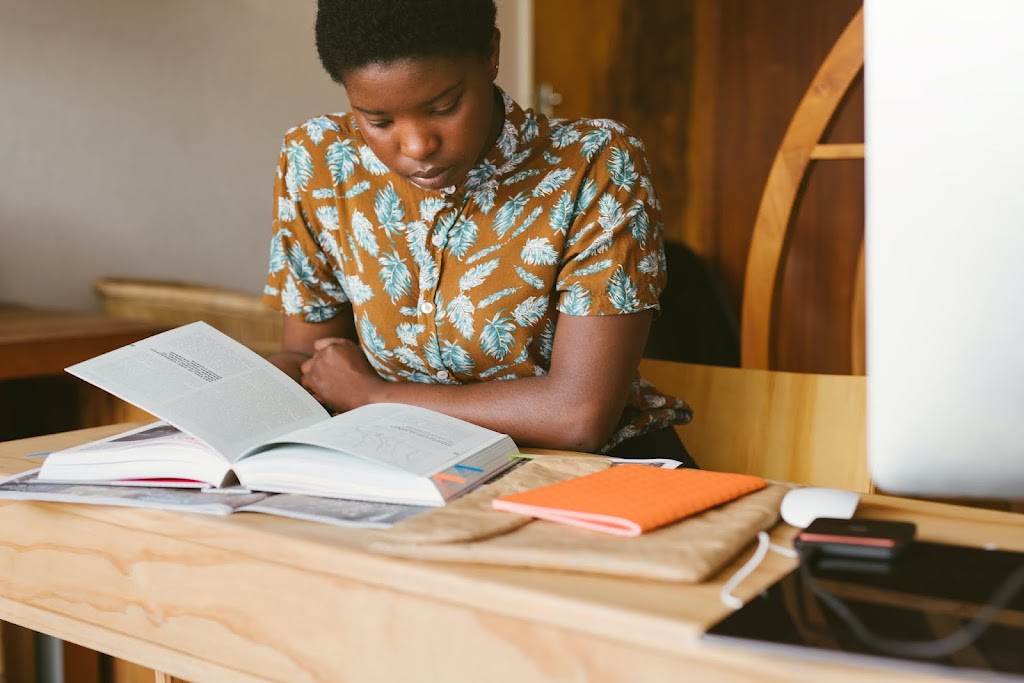
Photo by RF._.studio from Pexels by Vanessa Oyiwodu Audu illiteracy /ɪˈlɪt(ə)rəsi/ noun 1. the inability to read or write. 2. lack of knowledge in a particular subject; ignorance. The loose definition of illiteracy can be subjective, especially when the ability to read, write and speak proficiently in a specific language is the main focus. By hammering on the ability to read and write, people can be perceived as literate in certain areas and considered ‘illiterate’ in others. An example can be seen with a person who is able to read, write and speak English proficiently but is not able to use a computer. By considering them ‘computer illiterate’, one may be diminishing the scope of their literacy. Rather than arguing about who is literate or not, the question that should be asked is if an individual is able to contribute to, and improve themselves and their society based on the level of their skills, knowledge, talent or education. In Nigeria, there is this belief that illiteracy is the cause of our underdevelopment or some of the social vices we face in the country. That may have been the reality in the past, but it is not the only reality of our country today. Over the years, the number of schools and graduates have increased across the country but the economic progress still remains low. So… should we still say illiteracy is one of the major causes of underdevelopment in the country? It is still a possibility. Illiteracy is without argument, a shortfall in Nigeria, but dwelling on it would be foolhardy. In truth, even illiterates can contribute to the country’s development. They might not be able to speak ‘proper English’ or even read or write, but they can still make use of their skill set and talents: some of which they were born with or acquired through informal learning. Rather than stigmatizing the individuals who are illiterate by standard definitions, we should consider giving them opportunities to show how their skills can be instrumental in our collective growth and development. Both illiterates and literates have something to contribute to the society and sometimes, hands-on experience in certain sectors can be a bigger plus than book-smarts. This brings us to the term, ‘functional illiteracy’. Functional Illiteracy means that a person has the ability to read, write and speak proficiently, but cannot use these skills for their own development and that of their community. Many individuals in Nigeria are functional illiterates who have spent many years in schools without being able to handle real life situations. What we should be fighting against is functional illiteracy. The reason underdevelopment persists in the social and economical sectors in Nigeria is most likely because we do not have literates who can function effectively or contribute positively to the development of the country. In conclusion, our struggle should be geared towards making individuals functional literates who can harness their knowledge, skills and talent in contributing positively to the economic and social growth of the society. One of the ways of doing so is by laying emphasis on the practical aspects of learning that ensure educated people are able to analyse problems and provide solutions for them.
Women’s Rights in Conferring Citizenship
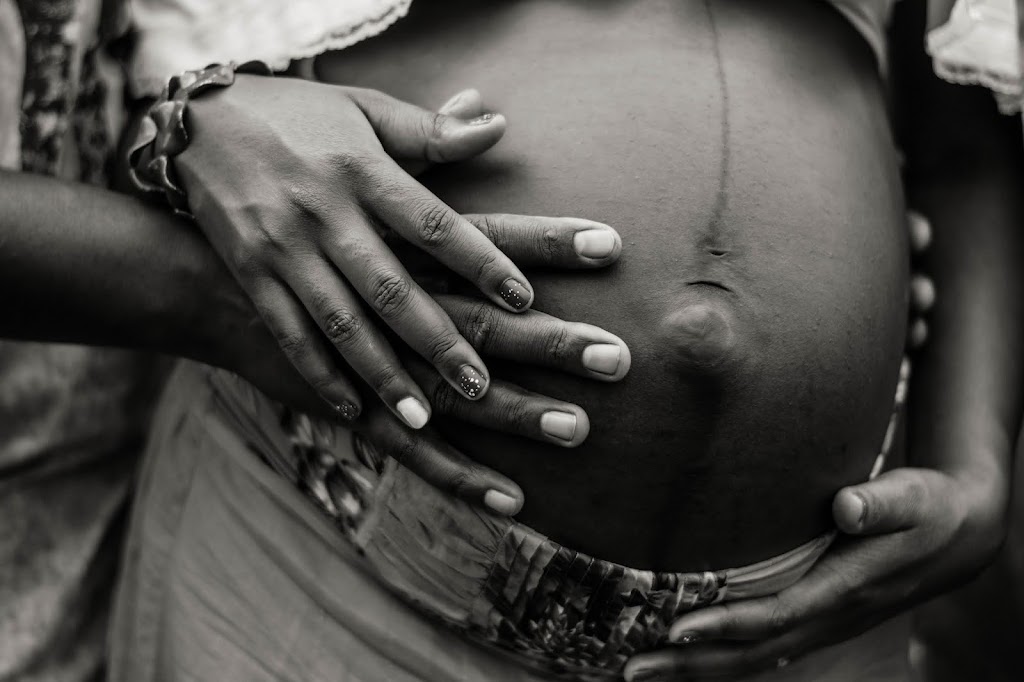
Photo by Dayvison de Oliveira Silva from Pexels by Emono Bwacha A citizen of a country is basically someone who has legal ties to that country. One of the most common definitions of citizenship is that it is “the sum total of rights and duties ensuing for a given person by reason of his legal affiliation to a certain State”[1] The concept of citizenship legally ties an individual to a particular region or country. As a direct result, the individual has obligations to said region or country and in return, the region or country grants the individual rights to enjoy as a citizen. There are different ways by which a person can become a citizen of a country. It can be by birth, naturalization, registration, marriage, and an honorary citizenship can also be conferred on a person by the government of a country. Regardless of how one becomes a citizen of a country, he/she – ideally – gets to enjoy all the rights applicable to citizens of the country regardless of age or gender. In Nigeria, Section 42 of the Constitution prohibits any form of discrimination and promotes equal enjoyment of rights by all. On paper, it seems like a pretty straight forward segment of the constitution. In reality however, there are certain other provisions of the law that seem to promote the unequal enjoyment of rights between men and women, one of which is the right to transmit citizenship. Take Section 26 of the Constitution of the Federal Republic of Nigeria (CFRN) 1999 (as amended) which relates to citizenship for instance. The law allows Nigerian men the right to confer citizenship on another person, but Nigeria women cannot enjoy that same right. This Section clearly states that the president may confer citizenship on “any woman who is or who has been married to a citizen of Nigeria”. By legal interpretation, this limits Nigerian women from transferring their citizenship to their foreign husbands. This is in direct contradiction of the provisions of Section 42 which prohibits discrimination based on sex, religion, and/or ethnic group. The experience of women’s citizenship is that it is treated as being of secondary or devalued status relative to men’s. The solution to this would be an amendment to the provision as there is no excuse for why men can transfer their Nigerian citizenship to their spouses, but Nigerian women cannot. Also, in many countries, women cannot transfer citizenship to their children. This has caused some issues of statelessness as outlined by the United Nations (UN).[2] According to the UN, equality between men and women in relation to conferral of nationality upon their children has not yet been attained in 25 countries over the world, with a significant number of these States found in the Middle East and North Africa (12 countries).[3] More than fifty countries have nationality laws with gender-discriminatory provisions, with most denying women the same rights as men to pass nationality to a noncitizen spouse.[4] Under the 1962 citizenship law of Somalia, mothers have no ability to confer their nationality on their children. In Eswatini (formerly the Kingdom of Swaziland), the constitution stipulates that a child born after 2005 can only acquire nationality from their Swazi fathers, unless the child was born out of wedlock and has not been claimed by the father in accordance with customary law: in which case the Swazi mother can pass on her nationality. In addition, Eswatini’s 1992 Citizenship Act contains the same provisions applicable to children born after 1992.[5] In a country like Nigeria where citizenship is experienced differently at both National and State levels, this brings in another issue women face with regards their ‘State of Origin’. Citizenship at the State level is defined in a patriarchal way, in terms of the ‘State of origin’ of one’s father but never their mother. In simple terms, children cannot identify with the State of origin of their mothers. They can only identify with the State of origin of their father. It becomes harder for women when they get married because they are then expected to abandon their fathers’ ‘State of origin’ and claim that of their husbands. In practise however, when the woman wants to run for office in her ‘new’ State, people from the State deny her this right because ‘she wasn’t born here’. If she then goes back to her father’s State of origin, people from there claim she’s no longer from that State because she is married to someone from another state. This has created confusion for many women, especially those vying – and are deserving – of leadership positions across many sectors of the economy. When women are denied these rights that are meant to be accessed by all citizens, it means they are looked on as second-class citizens. It is therefore important to amend these segments of the constitution to ensure women are treated as equally as men are. Equality in citizenship rights is not only fundamental to women’s rights but also supports child’s rights and sustainable development. [1] Ordor A. “Sharing the Citizenship of Women: A Comparative Gendered Analysis of the Concept of ‘Legal Personhood’ in Africa” (2000). [2] UNHCR, “Background Note on Gender Equality, Nationality Laws and Statelessness” (2014). [3] UNHCR, ‘Background Note on Gender Equality, Nationality Laws and Statelessness” (2020). [4] The UN Refugee Agency, “Time for all nationality laws to uphold women and men’s equality, says UN and civil society leaders” (2020). [5] UNHCR, ‘Background Note on Gender Equality, Nationality Laws and Statelessness” (2020).
Happening in September: The 2021 Abuja Literary and Arts Festival
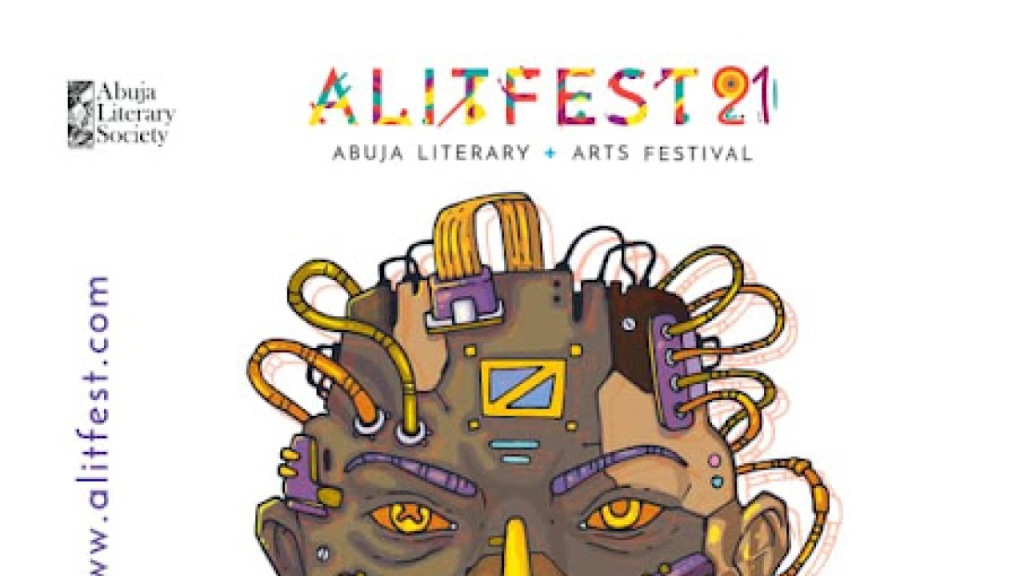
We. Are. Excited. About. #ALitFest21! The fourth edition of the Abuja Literary and Arts Festival is about to happen and we are super elated! If you know us, you know we are huge fans of the festival. We can’t wait to be a part of the festivities, conversation and all the events lined up towards making art work. Check out their official press release below. The fourth Abuja Literary and Arts Festival [ALitFest21] presented by the Abuja Literary Society [ALS] is set to take from 25th September to 2nd October 2021. Now in its fourth year, ALitFest21 has become a landmark of Abuja’s cultural scene. The theme this year is ‘Making Art Work.’ With this theme, we invite speakers and attendees to explore tools, systems and institutions that will help creatives generate sustainable livelihoods from their art while using it to promotes community values. According to Festival Director, Teniola Tayo, “We would like to take things a step beyond conversations so the idea behind this theme is to programme the festival around finding solutions to the challenges facing the literary space in Nigeria and in Africa.” Last year, the festival was held virtually and extended its shores beyond Nigeria to other parts of Africa, and the rest of the world. This was a necessity in view of the global pandemic. We were also able to include the African diaspora in our conversations with cross over panels that included Africans and African Americans. The results of that virtual festival far outweighed our expectations and therefore, this year, we propose to host a hybrid festival which is scheduled to take place in two separate spaces: virtual and physical. The physical space which will follow COVID-19 protocols, would be held in Abuja and will require a token donation for tickets which can be gotten via Afritickets while the virtual space will be on Zoom, registration links will be shared on the festival website: www.alitfest.com and on its social media handles [Twitter @alitfest, Instagram @alitfest_, Facebook @Abuja Literary and Arts Festival]. Proposed activities on the festival’s program include panel discussions, poetry for stage, festival anthology, roundtable on creating a bestsellers list in Nigeria, art exhibition, fiction, poetry and script writing workshops, language translation competition, secondary school debate competition, outreach at camp for Internally Displaced Persons, intensive boot camp for creatives, book chats, poetry grand slam, writing competitions, book and arts fair, as well as a closing music concert. Pre-festival activities include; a 3-day writing workshop which seeks to empower participants with the skills and know-how that would enable them take their craft to the next level which include improved writing quality, networking, publishing, earning among others. The workshop will hold virtually for selected participants. ALitFest21 pre-festival activities also include a book drive whereby donated books would be taken and distributed to families at an Internally Displaced Persons (IDPs) Camp in Abuja. Books are being received at RovingHeights Bookstore, CVS Plaza, 145 Adetokunbo Ademola Cres, Wuse 2, Abuja. The ALITFEST is an annual celebration of the arts and literature from across the country and continent, since its inception the festival has explored insightful themes; In 2018 “Nigeria to the World”, 2019 “Arts and Social Consciousness” and 2020,” The Art of Empathy”. It has also seen speakers and panellists that transcends the Nigeria Literary and cultural space which include: Helon Habila, Edwige Dro, Sawad Hussain, Dike Chukwumerije, Kola Tubosun, Tsitsi Dangaremgba, Toni Kan, Dapo Olorunyomi, Chika Oduah, Segun Adeniyi, Ayodele Olofintuade, Chuma Nwokolo, Chris Ngwodo, Abdulkareem Baba Aminu, Editi Effiong, T. J. Benson, Eketi Edima Ette, Osasu Igbinedion, Tunde Leye, Oyinkan Braithwaite, Esther Mirembe Abubakar Adam Ibrahim, Layla Ali Othman, Odafe Atogun, Edify Yakusak, Bash Amuneni among others. The festival is grateful for the partnership of South Africa based Geko Publishing in the execution of the 2021 festival. For partnership enquiries, please email teni@alitfest.com. Signed Teniola Tayo Festival Director [teni@alitfest.com]. Whewww! It sounds like it is going to be a power packed couple of days. We are going to be attending. And we hope to see you there. Here are some pictures from the 2019 #ALitFest.

